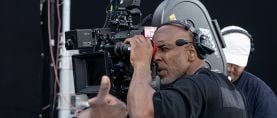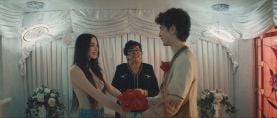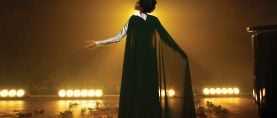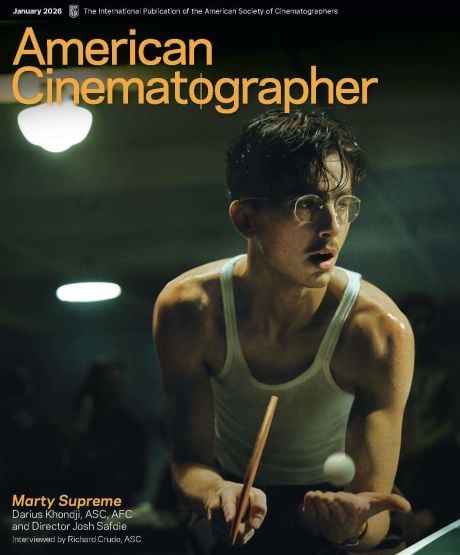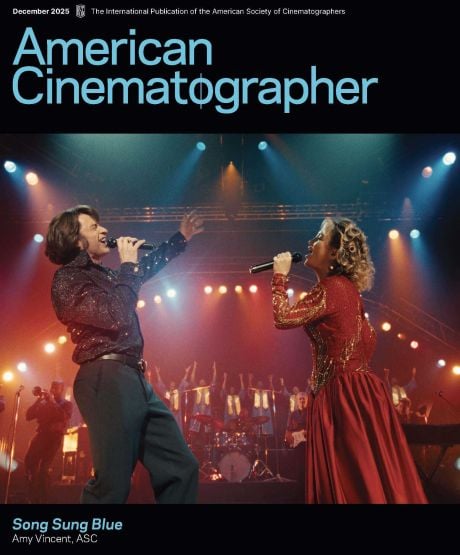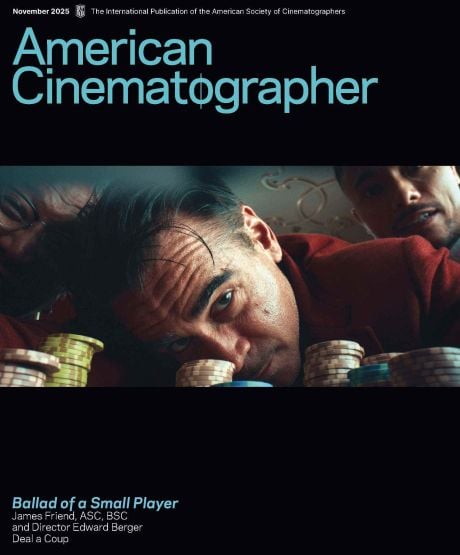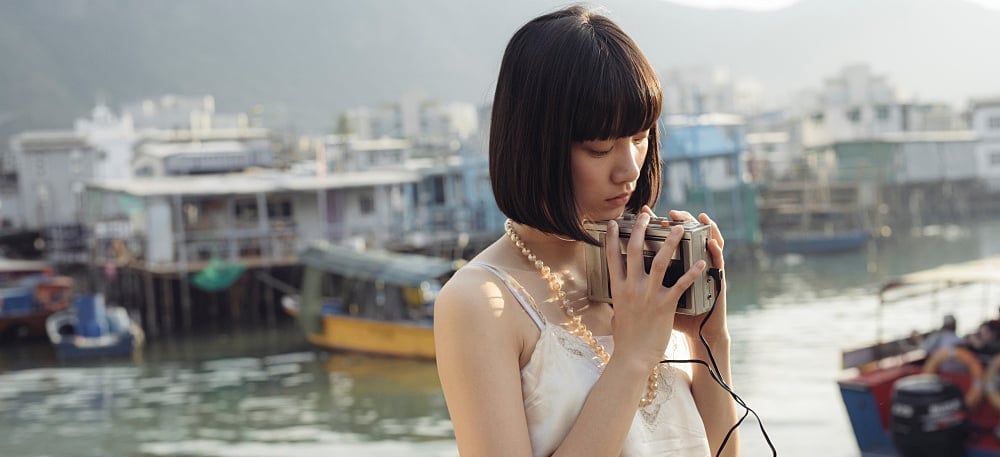
The White Girl: Life on the Edge
Co-directors Christopher Doyle, HKSC and Jenny Suen discuss their passion project, which examines those living on the fringe of ever-changing Hong Kong.
Co-directors Christopher Doyle, HKSC and Jenny Suen discuss their passion project, which examines those living on the fringe of ever-changing Hong Kong.
With close to a 100 feature-film credits to his name, Hong Kong-based cinematographer Christopher Doyle, HKSC has collaborated with a wide range of directors, from Zhang Yimou (Hero, 2002) and Peter Chan Ho-sun (Perhaps Love, 2005) to Gus Van Sant (Paranoid Park, 2007) and Jim Jarmusch (The Limits of Control, 2009). Doyle is perhaps best known for the seven features he shot with director Wong Kar Wai, including Chungking Express (1994) and In the Mood for Love (2000).
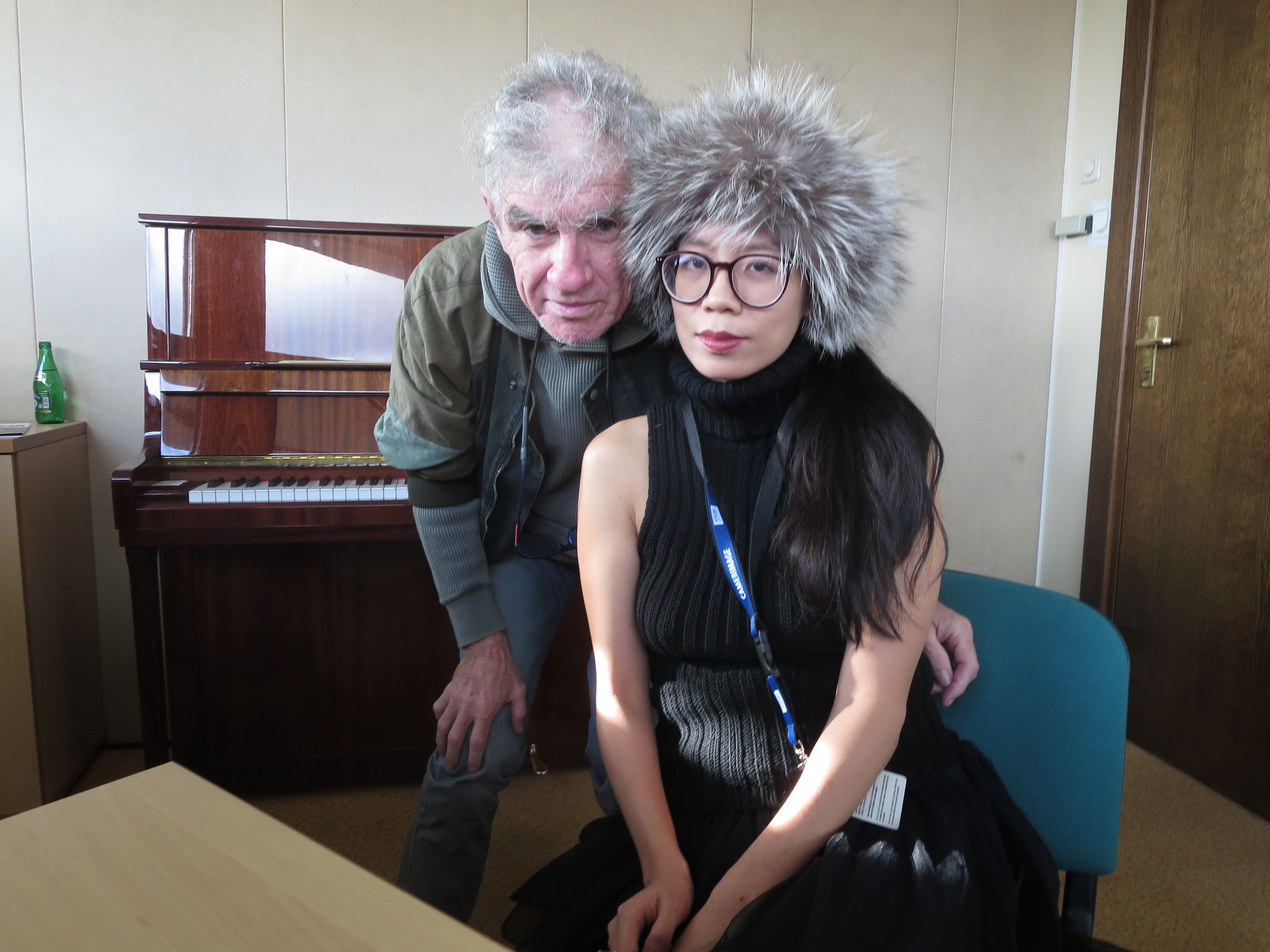
Doyle recently worked with producer and co-director Jenny Suen on two personal projects. The crowd-funded Hong Kong Trilogy: Preschooled Preoccupied Preposterous (2015) used non-actors and real-life settings to tell three related stories. The White Girl (2017) takes place in a Hong Kong fishing village on the brink of development that will change the lives of its inhabitants:
Doyle and Suen recently met with American Cinematographer to discuss their latest collaboration.
American Cinematographer: You’ve said that two of the biggest problems facing The White Girl were distribution and censorship.
Chris Doyle: China is making more films than India now, 300 or 400 a year...
Jenny Suen: It’s actually 800 or 900.
CD: ...and only 10 of them make any money. So our biggest challenge is distribution. The money’s there. The cinemas are there, but they’re full with your stuff, Hollywood stuff. Seventy percent of the films made in China now never get seen. They get made at all because people are laundering money or playing mogul.
JS: In the US, something that's not a Marvel film like The Avengers will get a platform release. You open it slowly, start in New York and LA and gradually build it out. You don't have that in China. They're still trying to figure out how to market a film without having an army of people doing it. I think Chinese moviegoers want to see something different, it's just that no one's figured out a way to communicate that to a billion people.
CD: I'm actually optimistic because things change so quickly. Nobody uses money anymore in China, they're all using their phones. To take a cab, even at a 7-Eleven. We're trying to restructure in a certain way to adjust for that.
JS: There's starting to be real money online, with video on demand, in China.
CD: You build your own platform. Kids who make their own YouTubes; we're not as savvy as they are perhaps. There are superstars who are just blogging pictures of themselves putting on make-up. Maybe we're not as smart as these 18-year-olds. Anyway, we have to be more creative than the studios, we have to be more innovative. It's a learning curve. And, to be blunt, festivals don't do anything anymore.
JS: Too many films in the festivals.
CD: What was the one that won the Berlin Film Festival? It won best film in Berlin and then nothing ever happened.
JS: Bai Ri Yan Huo [Black Coal, Thin Ice]. It made 15 million in China.
CD: They probably spent 15 million just getting people to Berlin. I was there. There were a 100 people in the room for the party. All this financial investment, and then nothing happened. There has to be another way. We don't know what yet.
You tried crowd-funding for your last film, Hong Kong Trilogy.
CD: That seems to be more complicated than it's worth.
JS: It's like double the effort, to be honest.
CD: Our challenge is the corruption of the system. The whole system is going into this mega-production kind of space. What used to be a very welcoming art-oriented, image-oriented space is totally breaking away.
JS: I think the bigger problem is not the economics, it's the politics. Censorship is the biggest problem in China, and it's something that we encountered with this film.
CD: Censorship is actually becoming more strict than when I first worked there, when I used to smuggle cans of film into China and re-smuggle them back to Hong Kong to print them. Beijing Bastards [1993, directed by Zhang Yuan, with Doyle as a producer], that was a real underground film. Every day I was carrying in 20 cans of film and then smuggling them back out. We had to, I won't say subvert the system, but we had to find another way to work. Then I think censors more or less gave up for a certain amount of time. Now, with the changes in diplomacy and politics in China, there are many more restrictions on how a film gets released in China, and on its relationship to film festivals, than there was even two or three years ago.
JS: In China, you can't make a film about time travel. You can't show cleavage. I've been working on a film about these independent women who rip off their sugar daddies. But if you have "bad" women, if they do something "bad," then something bad happens to them in return. Even to show a film at a film festival at China you have to go through censorship. The White Girl was supposed to compete at Pingyao [Pingyao Crouching Tiger Hidden Dragon International Film Festival(PYIFF)]. During the 19th Party Congress, just hours before the press conference to announce the line-up, we were pulled from the festival.
Why is that?
JS: I don't feel bad about it. I think you know we are quite political.
CD: We are what's called "soft political." All life is "political." Choosing to have a hard-boiled egg or a soft-boiled egg is political.
JS: There are many bridges in our film, and one of them [the Hong Kong–Zhuhai–Macau Bridge], one that's under construction now, connects Hong Kong to China. We were told that we had to cut all the images of the bridge, I think it's two shots, the two shots of the bridge, and all dialogue about the bridge, which is just one sentence.
CD: You think they'd be proud of the bloody bridge. That's the whole point.
JS: In Hong Kong people have been protesting it for years.
CD: Because with the bridge, you can literally drive from your business center in China right into the middle of Hong Kong. So it is a metaphor for incursion.
JS: It's not a metaphor for incursion, it's a metaphor for being closer to something we have anxiety about. It's very soft. When I say we're political, it's not like this movie's people talking about politics. The story is about a girl who is allergic to the sun.
CD: The audience may or may not see everything, there are a lot of political messages in this film.
JS: When someone in Hong Kong watches The White Girl, there's a lot of these hidden symbols. Unless we told you the bridge to China represents all the anxiety that Hong Kong people feel about closer integration with a country that's not really free, you wouldn't really see that.
CD: What protects us ultimately is that bureaucrats are not very savvy about images. They care about words. But they don't really understand images. That's why we can try to work out what we do and make it more subversive.
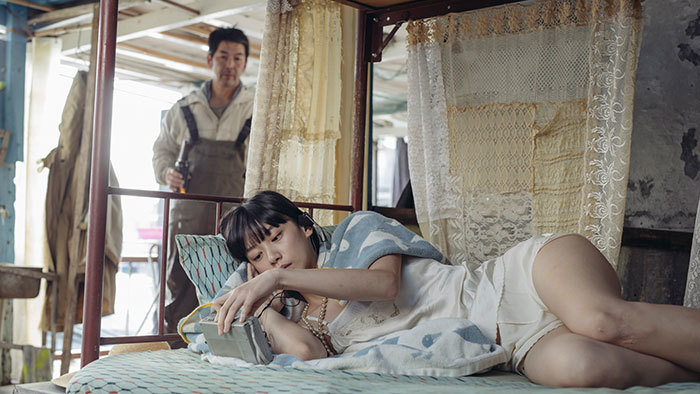
Can you talk about your approach to The White Girl?
JS: We spent five years making this film, and I don't think we talked very much about an approach. Looking back, I think you prepare the best you can but you can't foresee the future, you can't prepare for every single contingency. And if you do I think it's a bit boring. The pleasure of making a film the way we do, with not a lot of money and a ton of freedom, is that you have the space to be able to be flexible and really listen to what the space is telling you or what the actors are telling you.
CD: I have the incredible pleasure of engaging with the wonder of people's real lives, that interface for me is magic realism. I feel like Gabriel García Márquez sometimes. These people have an astonishing view of life. Their imagination is astonishing. We couldn't write it, we couldn't imagine it. I'm not a 10-year-old girl in Hong Kong. Or a person who swam from the mainland in the 1950s to escape China. In a sense, I'm not even Australian anymore. That's the great privilege and the challenge of a cinematographer. What we're trying to do is give the people their own voice. And the approach is, okay, you have something to say, probably better than I could, I can't write it for you. I can interpret it for you. I think that's what we're trying to do. I have a certain proficiency or, what's the word — engagement with space and light. So we're a bridge between a documentary and an interpretation, an enhancement of the wonders of life. I hope. It sounds a bit evangelistic. This balance between people's mundane existence and the possibility, the dream of life, I think that's what we're trying to celebrate. We're really bloody New Age in a certain way. The only thing we do is enhance it a little bit and try to take it into where their ideas take us. We're looking for a space that's not reality TV, it's an engagement with these people. For me, it's exactly where we need to go. We need to have new narratives.
What makes this different from reality TV?
CD: [laughing] Reality TV is more contrived than we are.
Can you explain how you "enhance" the reality you're portraying?
CD: The image.
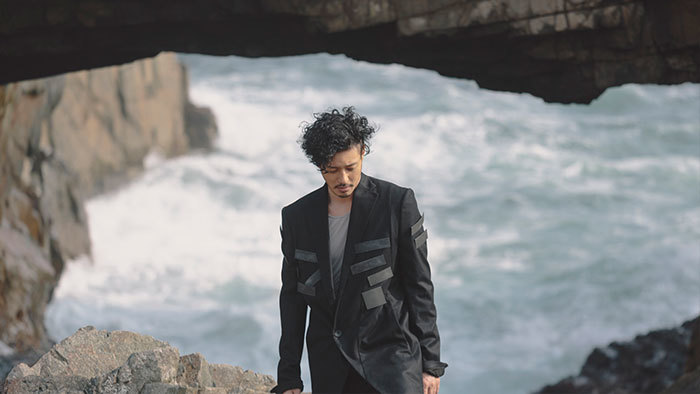
JS: Part of it is image but also part of it is rhythm, really. I think it's the poetry, there's no poetry in reality TV. In reality TV, they're trying to tell you what to think. With poetry, no one is telling you what to think. We're showing you something and giving you, or giving the audience, the space to find their own feelings.
CD: What happens with what we're trying to do is how I approach any film. The location is what works. The lyrics of [the Madonna song] “Like a Virgin” go “touched for the very first time.” I think every time you read a script you're touched for the very first time. Every time you see an image that moves you, or for me a location that gives you energy, an exchange of energy. You aretouched and you are moved. You’re excited. Even after, in my case, almost 100 films. I lose count because the next film is always the best one. The next expression, the next encounter is always the best one, to me anyway.
But you can't just turn reality into a narrative. I got frustrated with Hong Kong Trilogy because certain characters would disappear, certain plot lines would dissolve.
CD: Believe me, it's the same for me. But we are finding the way, we're on a roll. And we see that in the audience response. Some people just totally enter into it, people are crying. And then other people will say they lost it for a moment. They're not used to this stuff. They're not used to poetry. We're evolving, evolving through the people we work with. It's a great honor because it's about Hong Kong. It's about a place that's given us so much. It's reciprocal. It's this wonderful give and take between these people giving us so much themselves, and us trying to share it with others, filter it through to others in a visceral way. It's ongoing. We're not there yet, I know. So we gotta do more. There's no question. But love it or hate it, at least you have a response to it, number one. And we are close to working out a way to continue to do this. Whether it's in our process of filmmaking or in our relationship with the money people, with distribution, or in our relationship with the audience. So wait for the next one.
I'm not sure how you can find financing for that kind of vision.
JS: We don't really know how we're doing it either. I don't think we've figured it out. The money for The White Girl didn't come from Hong Kong or China because it couldn't. One, there's no money for films in Hong Kong anymore. The money came from Malaysia and Japan. I think we're still trying to figure out a way to have the freedom to be doing what we're doing, something sustainable. The first film, Hong Kong Trilogy, was crowd-funded. The second one we wanted to do more, so we had to find money outside of where we come from. Typically a Chinese film gets money from China, a Japanese film gets money from Japan. We're still trying to figure out a space to be able to speak to our audience, because if the money for the film doesn't come from where you come from then distribution doesn't follow.
You jokingly referred to your work as "New Age," but I do think there's a spirituality to how you work. You find the inner core of everyone you shoot, you find the person rather than a character or a star.
CD: I'm a recovering Catholic. I made a film with Neil Jordan once [Ondine, 2009] and he asked me, "Chris, why are all your films are so different?" I was totally shocked because I think, for example, I've only made onefilm with Wong Kar Wai, it just had all these different variations. The most pure one was In the Mood for Love. Through all the others we were looking for that film. I think the process is that journey. So I realized that for me the films are different because they're made in different places with different people who have different energies or different life expectations or ways of approaching things. What happens when you don't quite get it? I did a film called Fallen Angels with Wong Kar Wai. Previous to that we had done Chungking Express, which was all long lenses. So, the idea was, “Fuck long lenses, we're going to do something different.” Let’s go opposite, let's go wide. We wound up using like a 9.6mm lens with an adaptor, it was almost like a fisheye wide angle. I mean, I could see my focus puller in the shot. On the first day, the first shot was a close-up on Michelle Reis, who is half-Portuguese, half-Chinese. So she has a Western nose, a Western nose on a fisheye lens. The first shot of this adventure in filmmaking was a close-up of this beautiful woman becoming grotesque Pinocchio. We shot all of the film like that, and then one day I hesitated, and I chose an 18mm lens, which was a long lens for this film. And I don't think there's more than two or three months in my life, and this is life 15 years ago, every two or three months I have a nightmare about that shot. That shot will never ever leave me in my life. Just that one hesitation, that one moment when I hesitated. And you can't. You can't. If you drop your guard for one second, if you lose focus for a moment, if you don't have energy and the focus to go with the changes in weather or how an actor is moving in space or if you just hesitate or you're a little bit slow — you can't sleep that night. You probably can't sleep for the rest of the film. Because it will stay with you. But, mistakes are what it's all about. To me, the greatest fear is that I don't live up to people's expectations, that I don't get them their money back. Or I don't give actors the astonishing lives that they deserve. Or, if it's an action movie, I always miss the bloody shot. To me, there and there [shifting his hands slightly] is the same, but to an action person it's totally different. I find my greatest fear is to shoot another action movie, actually.
